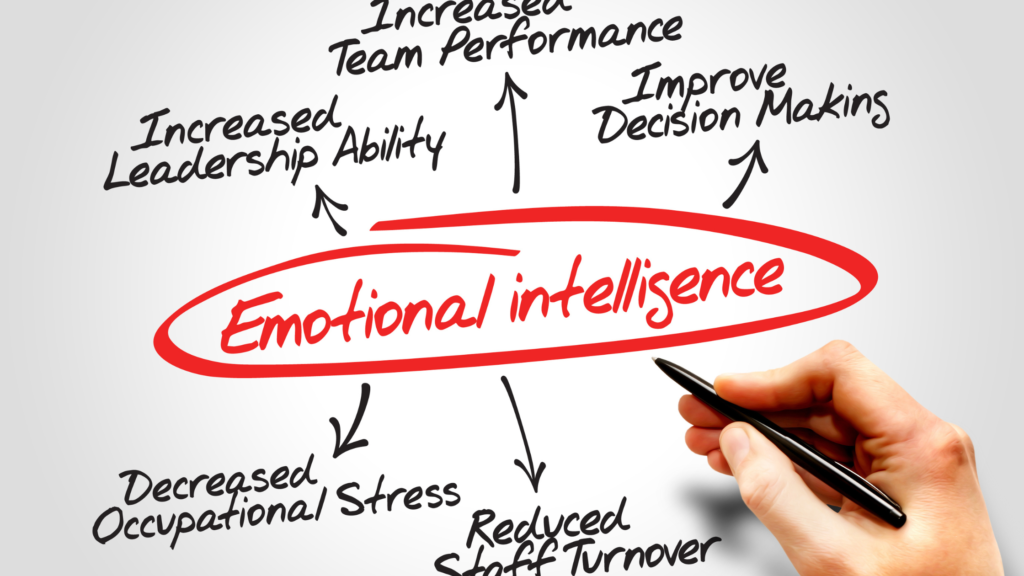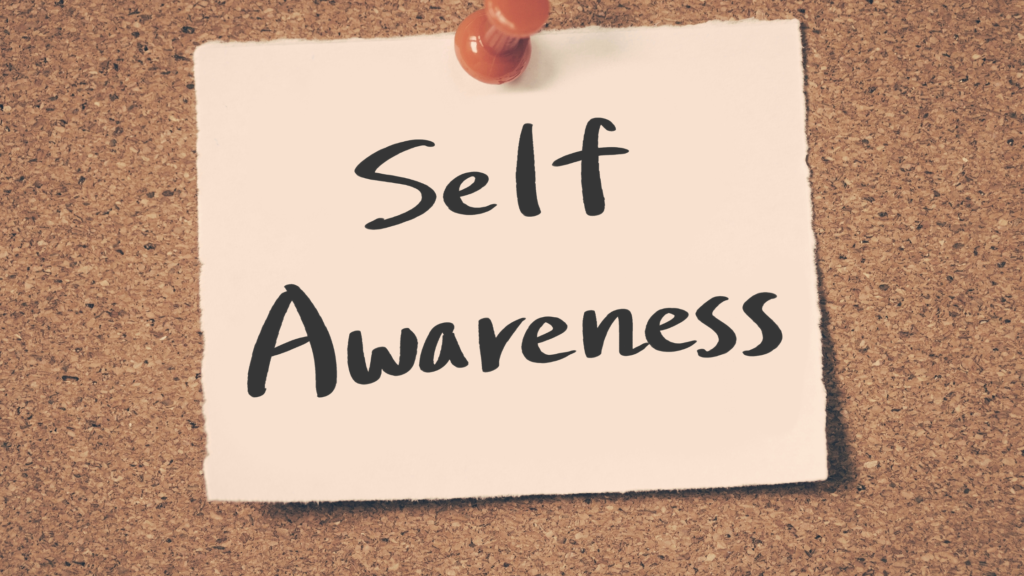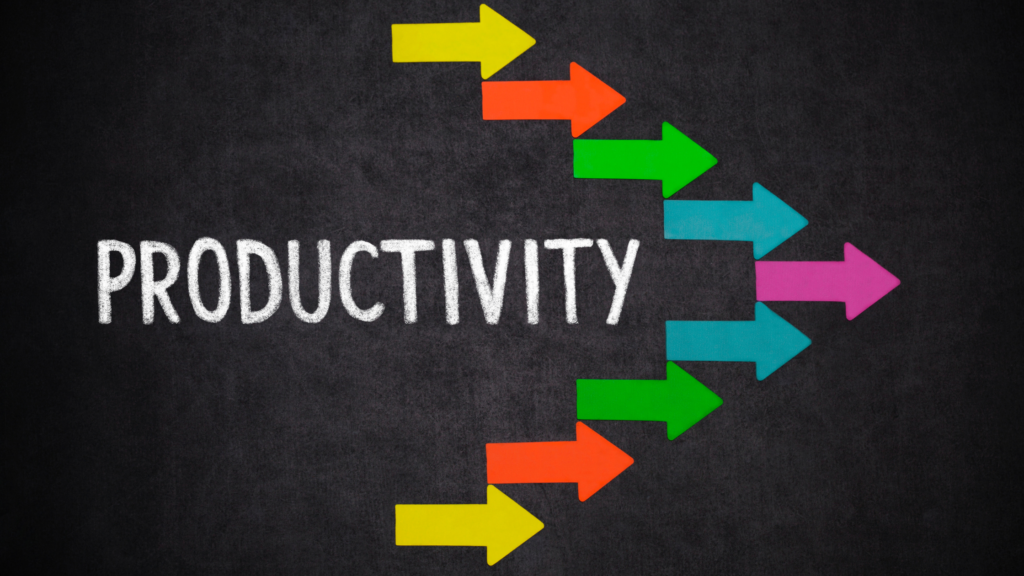Cultivating emotional intelligence, Picture this: Sarah, a talented software developer, finds herself consistently passed over for promotions at her tech firm. She’s a whiz at coding but struggles in team meetings, often interrupting her colleagues and dismissing their ideas. Meanwhile, Tom, a developer with similar technical skills, quickly rises through the ranks. The secret to Tom’s success? Emotional intelligence. He’s a master at navigating team dynamics, actively listens to others, and handles criticism like a pro. While both are technically gifted, it’s Tom’s high emotional intelligence (EI) that makes him an irreplaceable asset to the company.
So, what exactly is emotional intelligence?
Simply put, EI is the ability to recognize, understand, and manage your own emotions while also being aware of, and influencing, the emotions of others. In both personal relationships and professional settings, emotional intelligence often trumps IQ when it comes to success. This blog post aims to dive deep into the facets of EI, offering practical advice to harness its power for a more fulfilled life.
What Is Emotional Intelligence? Understanding the Components and Origins
When we talk about emotional intelligence, we’re not discussing a singular, one-dimensional skill. Instead, think of EI as a complex puzzle with several pieces that fit together to give you a complete emotional portrait. Let’s break it down into its core components:
- Self-Awareness: This is the foundation of emotional intelligence. Being self-aware means understanding your emotions as they happen and recognizing their impact on your actions and decisions.
- Self-Regulation: This goes hand-in-hand with self-awareness. It’s the ability to control your emotions and impulses, allowing you to think before you act.
- Motivation: A strong internal drive to achieve, coupled with a positive outlook and a clear focus, characterizes this component.
- Empathy: Understanding other people’s emotions is crucial for healthy social interactions. Empathy allows you to recognize how others are feeling and respond appropriately.
- Social Skills: This wraps up emotional intelligence with the ability to manage relationships, inspire others, and influence emotional dynamics within a group.
Now, where did this term come from? While the concept of emotional intelligence has roots in ancient philosophical texts, it gained academic traction in the 1990s. Psychologist Daniel Goleman popularized it with his groundbreaking book, “Emotional Intelligence,” bringing the term into the mainstream consciousness. However, Goleman argued that EI could be just as important—if not more so—than IQ in determining life success.
By understanding these components and the history behind emotional intelligence, we’re better equipped to harness its potential in our daily lives.
The Science of Emotional Intelligence: What’s Going On Upstairs?

You might wonder if emotional intelligence is more than a trendy buzzword. Well, science says yes, and the fascinating realm of neuroscience and psychology supports this.
Neuroscientific Perspective
The limbic system—a set of structures in the brain involved in emotion, behavior, and memory—is the neurological cornerstone of emotional intelligence. Particularly, the amygdala, often considered the emotional center of the brain, plays a significant role. It’s responsible for our ‘fight or flight’ responses and works in tandem with our prefrontal cortex, which governs reasoning and decision-making. In addition,the interplay between these regions helps us manage our emotional responses and exhibit self-control.
Psychological Insights
From a psychological standpoint, various studies underscore the importance of EI. For instance, a study by Travis Bradberry and Jean Greaves, authors of “Emotional Intelligence 2.0,” found that 58% of job performance in various occupations is accounted for by emotional intelligence. Another study in the Journal of Applied Psychology confirmed that higher emotional intelligence is linked to better job performance across multiple sectors.
As someone working on a degree in psychology,
I can assure you that these aren’t just fancy statistics; they highlight a significant shift in how we understand human capability and performance. However, Emotional intelligence isn’t a soft skill; it’s a must-have skill that has hard scientific backing.
So, emotional intelligence is more than just ‘nice to have’; it’s a critical skill grounded in our brain’s architecture and validated by psychological research.
Why Emotional Intelligence Matters: The Golden Ticket in Life and Work
You’re probably asking, “Okay, so emotional intelligence is important, but how does it actually affect my life?” Well, let’s dive in. The benefits are broad and impactful, touching every facet of personal, professional, and even societal well-being.
Personal Relationships
Firstly, on a personal level, having high emotional intelligence means you’re better at understanding not just yourself but also the people around you. This leads to healthier relationships. With skills like empathy and self-regulation, you can navigate disagreements and understand different viewpoints, making you someone people genuinely want to be around. Moreover, let’s be real—who doesn’t want more fulfilling friendships and romantic relationships?
Professional Settings
Now, let’s talk shop—workplace benefits. Emotional intelligence is like the Swiss Army knife in your professional toolbox. It helps you lead teams more effectively, manage stress, and adapt to change. Those with high EI are often better at understanding the needs of their colleagues and clients, making them invaluable team players and negotiators.
Leadership Roles
When it comes to leadership, EI is basically non-negotiable. Leaders with strong emotional intelligence build more cohesive teams and foster a positive work environment. However, they’re also better equipped to handle crisis situations without cracking under pressure. Trust me; your employees will thank you.
In essence, emotional intelligence is your golden ticket to a better life. It holds transformative power that spans personal happiness to professional success and effective leadership.
Assessing Your Emotional Intelligence: A Mirror to Your Soul
Before you can improve your emotional intelligence, it’s crucial to know where you stand. Self-awareness is the first step, so let’s engage in a bit of introspection. Below is a quick self-assessment designed to give you an initial gauge of your EI level.
Quick Self-Assessment Questions
- Do I recognize my emotions as they occur?
Often / Sometimes / Rarely / Never
- Can I manage my emotions in stressful situations?
Always / Often / Sometimes / Rarely / Never
- Do I empathize with others and understand their feelings?
Always / Often / Sometimes / Rarely / Never
- Am I able to maintain positive relationships both personally and professionally?
Always / Often / Sometimes / Rarely / Never
- Do I adapt well to changing situations or new information?
Always / Often / Sometimes / Rarely / Never
Scoring:
Always / Often: 2 points
Sometimes: 1 point
Rarely / Never: 0 points
Interpretation:
8-10 points: High Emotional Intelligence
5-7 points: Moderate Emotional Intelligence, room for improvement
0-4 points: Low Emotional Intelligence, substantial room for growth
This self-assessment isn’t the be-all and end-all, but it’s a starting point. If your score suggests there’s room for improvement, don’t sweat it. Emotional intelligence is a skill, not an innate trait, and skills can be developed.
Practical Steps to Cultivate Emotional Intelligence: The NLP Twist
So you’ve assessed your emotional intelligence and are probably wondering, “What’s next?” The good news is emotional intelligence can be developed, and you’ve got the power to improve each of its core components. However, given my background in NLP coaching, I’ll blend in some NLP techniques that are incredibly effective for this.
Self-Awareness

- Journaling: Every evening, jot down the emotions you felt during the day and what triggered them. It helps you become more aware of your emotional patterns.
- NLP Technique – Self-Reflection: Spend 5 minutes visualizing your day, focusing on moments when you felt emotionally charged. Recognize these emotions without judgment.
Self-Regulation
- Deep Breathing: Whenever you find yourself overwhelmed, practice deep breathing to center yourself.
- NLP Technique – Anchoring: Use a tactile trigger (like touching your thumb and forefinger) whenever you’re calm. Use this anchor to bring back that state when stressed.
Empathy
- Active Listening: When talking to someone, focus solely on understanding their point of view, without formulating your response.
- NLP Technique – Mirroring: Subtly mimic the other person’s gestures and tone. This creates rapport and enables you to feel what they’re feeling.
Social Skills
- Open-ended Questions: Use these in conversations to understand people better and make them feel valued.
- NLP Technique – The Meta-Model: Use clarifying questions to dig deeper into what someone is saying, uncovering the unsaid and improving understanding.
Motivation
- Set Micro-goals: Break your tasks into smaller tasks and celebrate these small wins to keep yourself motivated.
- NLP Technique – SWISH: Visualize yourself moving from a demotivated state to a highly motivated one. It conditions the mind to make this ‘SWISH’ when needed.
Each of these actionable steps and NLP techniques can become a valuable tool in your emotional intelligence toolkit.
Are you ready to incorporate these tips into your daily life? Let’s keep going!
How EI Enhances Productivity and Goal Achievement: The Unbeatable Combo
You might be wondering, “Charli, what’s the link between emotional intelligence and the productivity hacks or goal-setting techniques you usually talk about?” Trust me, they’re more interconnected than you’d think!

The Motivation Link
A strong sense of intrinsic motivation, a cornerstone of emotional intelligence, pushes you to achieve your goals. When you’re motivated, your productivity naturally skyrockets. However, It’s the fuel behind every successful Pomodoro Technique session or Bullet Journal entry.
Empathy and Teamwork
Whether it’s a group project at work or a community endeavor, high emotional intelligence fosters better understanding and communication. Moreover, This enhanced teamwork doesn’t just make the experience more pleasant; it makes it more efficient.
Self-Awareness and Time Management
Being self-aware helps you understand your peak performance hours and your down times. This allows you to schedule tasks when you’re most effective, a classic productivity hack. However, If you’ve ever customized your Eisenhower Matrix based on your mood and energy levels, you’re already implementing this!
Goals aren’t always easy to achieve; there are bumps along the way. The self-regulation aspect of emotional intelligence helps you manage stress and bounce back quicker, ensuring you stay on track with your objectives.
By now, it should be clear that emotional intelligence isn’t just a “soft skill.” It’s a crucial element that complements the hard tactics of productivity and goal-setting. When EI meets productivity techniques, it’s like a match made in heaven—or at least in a super-effective planner!
Case Studies/Success Stories: Real-Life Transformations Through Emotional Intelligence
Let me share a couple of success stories that underscore the transformative power of EI, right from my own coaching sessions.
Case Study 1: Sarah, the Team Leader
Sarah was a brilliant leader in terms of technical skills but faced challenges in managing her team effectively. She often found herself in conflicts and couldn’t quite understand her team’s lack of enthusiasm. After several coaching sessions focused on building her emotional intelligence—especially empathy and self-awareness—Sarah saw a radical shift. Not only did her team’s productivity increase by 30%, but their job satisfaction ratings also skyrocketed. Additionally, Sarah’s journey was a testament to the profound impact emotional intelligence can have in a professional setting.
Case Study 2: Mark, the Serial Procrastinator
Mark had all the tools and strategies to be productive but somehow always fell short of his goals. In our coaching sessions, we implemented NLP techniques to improve his self-regulation and self-awareness. A few months in, Mark’s procrastination was a thing of the past. More importantly, he gained a deeper understanding of himself and his triggers, allowing him to navigate challenges with more ease and effectiveness.
focusing on emotional intelligence
Both Sarah and Mark discovered that focusing on emotional intelligence was the missing link in their quests for personal and professional growth. Moreover,through targeted NLP techniques and self-assessment, they were able to actualize their potential fully. And if they can do it, so can you!
Concluding Thoughts: Why EI Is Your Secret Superpower
So there you have it, folks. Emotional Intelligence isn’t just a buzzword or a trendy topic to explore. It’s a fundamental skill set that impacts every area of our lives—from personal relationships to our professional careers and even our overall well-being. Sarah and Mark’s stories are proof that EI can be the missing link in your journey towards greater success and happiness.
Your Action Plan Starts Now!
If there’s one thing I want you to take away from this post, it’s this: start honing your emotional intelligence today. Don’t wait for a magical ‘ah-ha’ moment to get started. You have the tools and insights; now it’s all about putting them into practice. Consider this your call-to-action. Start with self-awareness, sprinkle in some empathy, add a dash of self-regulation, and watch how your life transforms for the better. You got this!
Additional Resources: Fuel Your EI Journey
Ready to dive deeper into emotional intelligence? Trust me, the learning never stops and the rewards are countless. Here are some resources that I highly recommend to keep your EI muscles flexing:
Books
- “Emotional Intelligence 2.0” by Travis Bradberry and Jean Greaves – A great read that comes with an online assessment to gauge your current EI level.
- “Primal Leadership” by Daniel Goleman, Richard Boyatzis, and Annie McKee – For those looking to apply EI in a leadership context, this book is a must-read.
Podcasts
- “The Science of Success” – This podcast often delves into topics related to emotional intelligence and provides actionable advice.
- “The Tony Robbins Podcast” – He covers a wide range of topics, but his episodes on self-awareness and emotional mastery are particularly enlightening.
Courses
- Coursera’s “Emotional Intelligence at Work” – This is a comprehensive course suitable for beginners and pros alike.
- Udemy’s “Emotional Intelligence: The Ultimate EQ Mastery Guide” – If you like a more structured learning path, this could be an excellent option for you.
Feel free to explore these resources at your own pace. They can provide further depth and actionable strategies to supercharge your emotional intelligence journey. Happy learning!
Here are a few of our most recent blog posts:
- Time Management Hacks for ADHD: How to Keep Your Focus and Get Things Done!
- Tips on Boosting Self-Confidence for Teens
- Common Meditation Problems
- Common Goal Setting Obstacles and How to Maneuver around Them
- Committing Yourself to Positive Actions
If you’d like to follow me on social media, you can find all of my links HERE
Get It Done Faster!

Just click the picture to get your free copy now!
Includes free eBook AND free workbook, including worksheets and instructions for each of the techniques!
Designed specifically for those on the go, dive deep into the art of rapid productivity. Every moment matters; make the most of it.
In a world that incessantly pushes for more hours, more hustle, and more grind, a revolutionary approach is quietly rewriting the rules of productivity. Have you ever found yourself staring at the clock, wondering where the day went and why your to-do list remains untouched? You’re not alone. The common belief is that longer hours equate to more accomplishments, but what if the key isn’t more time, but how you use it?
Introducing “Get It Done Faster” — a game-changing technique that capitalizes on our brain’s natural rhythms and energy peaks. Instead of laboring for hours on end and burning out, imagine achieving more in short, focused intervals, punctuated by refreshing breaks. It’s not about working harder; it’s about working smarter. This method, inspired by tools like the Pomodoro technique and the Eisenhower matrix, taps into the sweet spot of productivity, ensuring that you’re operating at your peak when it matters most.
The links on this page may be affiliate links. That means that if you make a purchase using these links, I may receive a commission. This does not change the cost for you.


Leave a Reply